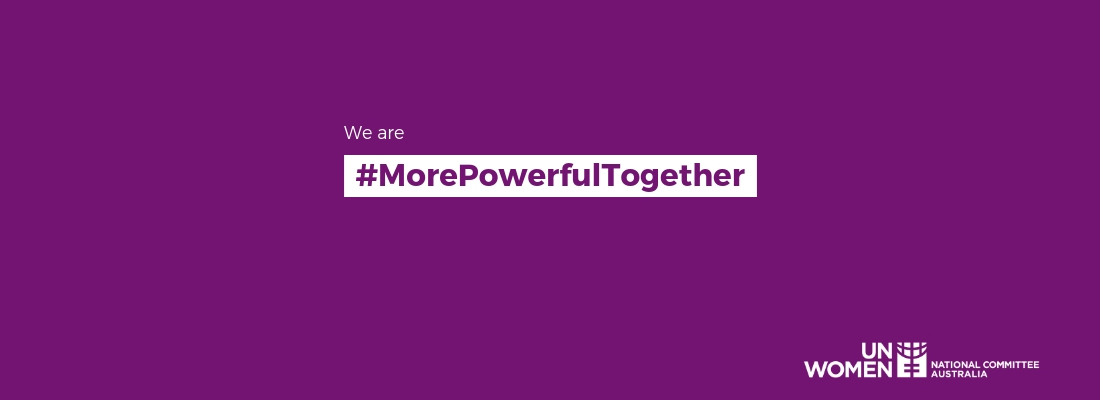Reflecting on the theme for International Women’s Day (IWD) 2019 ‘More Powerful Together’, this blog looks at initiatives designed to benefit women within the Victorian government Social Procurement Framework (SPF).
‘More Powerful Together’ is about:
Recognising the important role women, men and gender diverse people play to advance gender equality. It takes all of us, working in collaboration and across that which sometimes divides us, to create a world where women and girls everywhere have equal rights and opportunities. It requires all of our participation to create a world where everybody can live a life free from violence and discrimination. More Powerful Together is a call for all of us to take a stand in unison for gender equality*.
As we explained in a recent blog, the SPF was introduced in 2018 and requires government buyers to leverage procurement spend to help achieve seven social and three sustainable objectives. Specific outcomes government wants achieved are linked to each of these ten objectives. The SPF allows each government buyer complete flexibility to determine which objectives and outcomes are a priority for them and the programs for which they are responsible.
For our IWD 2019 special blog we shine a light on one of the SPF objectives, ‘women’s equality and safety’. Two outcomes are nominated for this SPF objective:
– adoption of family violence leave by government suppliers
– gender equality within government suppliers.
Adoption of family violence leave by Victorian government suppliers
With a new statutory authority Respect Victoria opening its doors in August last year, Victoria is at the forefront of family violence prevention. Respect Victoria’s vision is for: ‘a Victoria free from violence where all Victorians are equal, empowered and respected at home, and everywhere’.
The SPF recognises the benefits for all Victorians that family violence policies bring:
Workplaces that have robust family violence policies can play a significant role in raising awareness of family violence, reducing the stigma for victims of family, and promoting a workplace culture that is equitable, respectful and supportive. A family violence leave policy can mean the difference between a person staying in an abusive relationship or taking action to address the situation.
Where relevant, government buyers can encourage their suppliers to offer family violence leave to employees – this is done through SPF questions in the RFT and corresponding commitments from tenderers that become contractual targets for the successful tenderer.
Gender equality within Victorian Government suppliers
Complementary to the remit of Respect Victoria is Victoria's Gender Equality Strategy, which cites as its vision:
All Victorians live in a safe and equal society, have access to equal power, resources and opportunities and are treated with dignity, respect and fairness.
All Victorians recognise that gender equality is essential to economic prosperity and that gender inequality has significant economic cost.
Victoria leads the way in gender equality with sustained, enduring and measurable action.
The SPF provides a framework for public expenditure to contribute to the achievement of the vision of Victoria’s Gender Equality Strategy, bringing benefit to all Victorians:
Women’s full and equitable participation in political, economic and public life signals the value we place on women’s contributions. Gender equality in leadership positions is proven to increase business performance and deliver diversity of thought leading to more innovative solutions**.
This outcome is also advanced by asking questions in the RFT, and tenderer commitments in response that become contractual targets for the successful tenderer.
How is SPF working?
We have observed a positive response to the SPF but government buyers aren’t always certain how it works or how to maximise their buying power to leverage SPF benefits.
The RFT asks tenderers to respond to the chosen SPF objectives and outcomes and includes a corresponding weighted evaluation criterion. Tender evaluators score the quality of the supplier response against the outcomes sought in the RFT.
For higher value procurements, tenderers must also outline their SPF commitments with specific targets. And, tenderers (or shortlisted tenderers) must provide a social procurement compliance plan in their tender. The negotiated compliance plan and commitments then form part of the successful tenderer’s contract.
Support material is available for government buyers, including detailed model approaches and a selection of suggested questions to include in procurement documentation and contracts for the outcomes under each of the ten objectives. For the two outcomes under the women’s equality and safety objective, the following are examples of model approaches:
- Government buyers may ask suppliers to complete a gender equitable business practice self-assessment that covers gender equality strategy, gender-inclusive culture, gender equality in leadership and management, gender composition in teams, equal remuneration and gender quality audits. A template is available.
- Government buyers may ask suppliers to commit to adopting a formal family violence leave policy if they don’t have one or to demonstrate and detail their policy when they do.
- For higher value procurements, targets could be set, for example, for industry appropriate labour hours performed by women.
At CourtHeath, we are excited this IWD about the leading role Victorian government organisations can take to address women’s rights through social procurement – it’s making Victoria More Powerful Together. Our probity and procurement experts can assist your organisation navigate your SPF obligations to make a real difference.
• • •
A participant in the UN Global Compact, CourtHeath seeks to raise awareness about the Sustainable Development Goals and the principles of the Global Compact with business and government organisations in Victoria.
• • •
* The UN Women National Committee Australia
** Guidance material on individual procurement activity requirements
Written by Dr Julia Cornwell McKean and Pauline Bernard
[
]
 CourtHeath Consulting
CourtHeath Consulting CourtHeath Consulting
CourtHeath Consulting